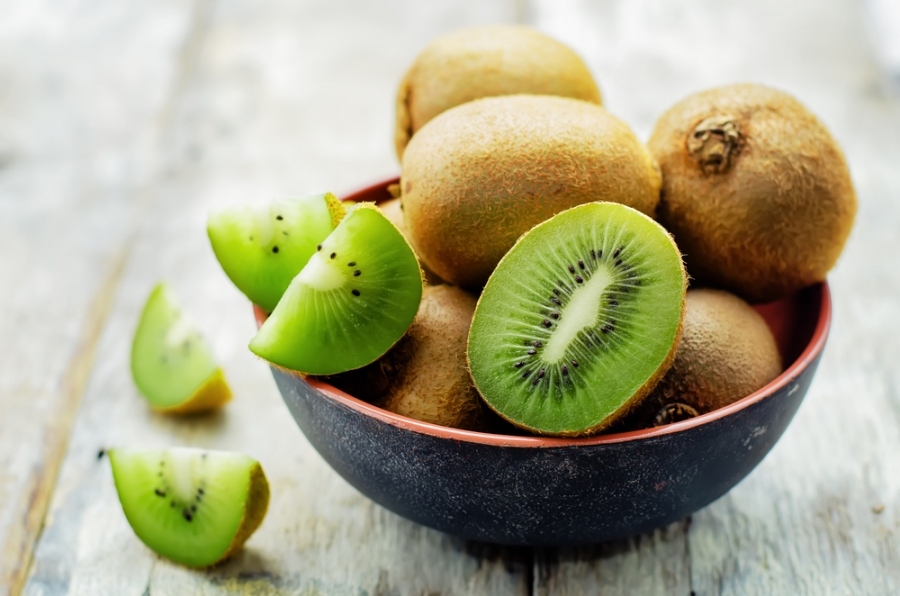Approximately 14% of the global population suffers from chronic constipation at some point in their life.
Talking about the symptoms, we can highlight conditions like passing stool less than 3 times a week, lumpy, straining, or hard stools, feeling blocked or incomplete evacuation, or inability to pass a stool.
Bad eating habit or eating too much often leads to constipation. Adding the following 5 foods to your everyday diet can certainly help relieve constipation:
-
Apples
An apple a day keeps the doctor away! You must have heard this famous saying so many times in your life. This saying is backed by the fact that Apples are pretty much full of dietary fiber. If we check the nutrition value of one medium-sized apple with its skin (approx. 180 grams), it contains 4.4 grams of dietary fiber that is roughly 17% of your recommended daily fiber intake.
Out of 4.4 grams of fiber content found in an apple, about 2.8 grams is insoluble fiber, whereas 1.2 grams is soluble fiber, typically found in the Pectin – a dietary fiber.
Based on one study conducted on 80 individuals with constipation, it was found that pectin can help accelerate the stool movement through the intestine by simply increasing the number of good bacteria in the gut.
-
Pears
Pears are simply another fruit that contains rich fiber content, typically about 5.5 grams of dietary fiber. A medium-sized pear (approx. 178 grams) contains fiber that is roughly 22% of your recommended daily fiber intake.
In addition to their fiber benefits, pears are very high in sorbitol and fructose as compared to many other fruits. Since fructose (a type of sugar) is poorly absorbed in case of many individuals, some of it ends up in the colon and there it pulls in water through the process of osmosis and stimulates a bowel movement.
The same is the case with sorbitol that many individuals have a problem absorbing. It acts as a natural laxative, which is by bringing water content into the intestines.
-
Kiwi
While it may be hard to find for some, you can easily get about 2.3 grams of dietary fiber per piece of kiwifruit (approx. 76 grams), which is roughly 9% of your recommended daily fiber intake.
Based on one study that was conducted on 38 individuals, over 60 years of age, who ate one kiwifruit per 66 pounds of their body weight each day, it was found that they all experienced an increased frequency and great ease of defecation. Not just this, all these individuals also experienced softening and bulking of stools.
This followed another study that involved individuals with constipation who ate two kiwifruits per day over a period of four weeks. The study resulted in spontaneous bowel movements, reduced laxative use, and complete satisfaction with their bowel habits.
Well, it’s not just the fiber in kiwifruit, which is thought to conquer constipation in the long run. The fruit also contains an enzyme called actinidain that is also believed to be responsible for the positive effects of kiwifruit on bowel habits to be specific.
-
Leafy Greens
Greens leafy vegetables like Brussels sprouts, spinach and broccoli are simply rich in fiber content. At the same time, these vegetables are great sources of vitamin K, vitamin C, and folate.
These leafy greens greatly help bulk and add weight to your stool, which makes it much easier to pass.
Looking at the nutrition value of one cup of cooked spinach, it contains 4.3 grams of dietary fiber, which 17% of your recommended daily fiber intake. Simply add spinach to your diet; you can try adding it to a pie or even soup. Additionally, you can eat tender greens or baby spinach raw to add them to your salads or preferably to sandwiches additional fiber intake.
Approximately 150 grams of Broccoli contains 3.6 grams of fiber, which is equivalent to 16% of your recommended daily fiber intake. You can cook broccoli or even add into your soup as well as eat raw as a snack or in salads.
-
Sweet Potato
One sweet potato of medium size (approx. 114 grams) contains about 3.8 grams of fiber, which is 15% of your recommended daily fiber intake.
In general, most of the fiber found in sweet potato is in the form of lignin and cellulose. Sweet potato also contains pectin – the soluble fiber. Insoluble fiber can help improve bowel movements by bulking and adding weight to your stool.
Conclusion!
A high-fiber diet can help bulk your stools, soften it and even stimulate bowel movement. Simply adding these foods to your everyday meals does a great job.
About the author:
Tejas Maheta is the Founder of techiegenie.com and a tech geek. Besides blogging he love reading books, Learning new things, and Hanging out with friends.



